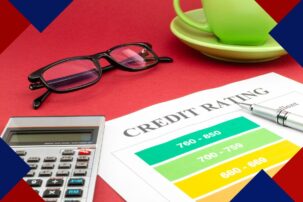Loans for Bad Credit
In today’s financial landscape, maintaining a pristine credit score can be challenging. Life’s unexpected twists and turns, such as medical emergencies, job loss, or unexpected expenses, can sometimes lead to a less-than-perfect credit history.
But fear not, for there are options available for those facing credit challenges. In this comprehensive guide, we’ll explore loans for bad credit, how to secure them, where to find them, and various types of credit-challenged borrowing options.
Whether you’re looking to rebuild your credit or need immediate financial assistance, this article is tailored to assist you in your journey towards financial recovery.
What are Bad Credit Loans?
Bad credit loans, also known as poor credit financing, subprime lending options, or credit-challenged borrowing, are financial products designed to help individuals with less-than-ideal credit histories obtain much-needed funds.
These loans are specifically tailored for those who may have faced difficulties in securing traditional loans due to their credit score.
Key Features of Bad Credit Loans:
- No Credit Check: Many bad credit loans come with the advantage of not requiring a traditional credit check. Lenders evaluate applicants based on other factors, making them accessible to those with low or damaged credit scores.
- Secured vs. Unsecured Loans: Bad credit loans can be either secured or unsecured. Secured loans are backed by collateral, such as a car or property, while unsecured loans do not require any collateral. Unsecured loans typically come with higher interest rates due to the added risk for the lender.
- Credit Score Improvement: Some bad credit loans are designed not only to provide funds, but also to help borrowers improve their credit scores. Timely payments can positively impact your credit history.
How to Get a Bad Credit Loan
Getting a bad credit loan may seem daunting, but with the right approach, you can increase your chances of approval. Follow these steps to navigate the process effectively:
- Check Your Credit Report: Begin by obtaining a copy of your credit report from one of the three major credit bureaus: Equifax, Experian, or TransUnion. Review it carefully for errors or inaccuracies, which can negatively impact your credit score.
- Understand Your Credit Score: Familiarize yourself with your credit score and the factors affecting it. This knowledge will help you identify which loans for bad credit are suitable for your situation.
- Research Lenders: Explore lenders for low credit scores that specialize in bad credit loans. Compare their terms, interest rates, and repayment options to find the most favorable option.
- Gather Documentation: Prepare the necessary documentation, such as proof of income, employment history, and identification. Having these documents ready will expedite the application process.
- Apply for the Loan: Submit your application to the chosen lender. Be honest about your financial situation and provide accurate information. If applicable, specify whether you’re interested in a secured or unsecured loan.
- Review Loan Offers: Once you receive loan offers, carefully review the terms and conditions. Pay close attention to interest rates, repayment terms, and any additional fees.
- Make Timely Payments: If approved, ensure you make timely payments on your bad credit loan. Consistent and punctual payments can gradually improve your credit score.
Where to Find Bad Credit Loans
When searching for loan approval with bad credit, it’s essential to know where to look. Here are some reliable sources to find bad credit loan options:
- Online Lenders: Many online lenders specialize in providing bad credit loans. They often offer a straightforward application process and quick funding, making them a convenient choice.
- Credit Unions: Credit unions are known for their community-focused approach to lending. They may have more flexible lending criteria than traditional banks, making them a viable option for bad credit borrowers.
- Peer-to-Peer Lending Platforms: Peer-to-peer lending platforms connect borrowers with individual investors. They often consider alternative factors when evaluating loan applications, making them accessible to those with bad credit.
- Secured Loans from Banks: If you’re willing to offer collateral, such as a vehicle or property, you may qualify for a secured bad credit loan from a traditional bank.
- Nonprofit Organizations: Certain nonprofit organizations provide financial assistance and counseling to individuals with poor credit. They can help you explore various options for improving your financial situation.
Types of Loans for Bad Credit
When seeking loans for bad credit, it’s crucial to understand the available options. Here are some common types of bad credit loans:
- Personal Loans: Personal loans for bad credit are unsecured loans that can be used for various purposes, such as debt consolidation, home improvements, or medical expenses. Interest rates may be higher, but they offer flexibility in use.
- Payday Loans: Payday loans are short-term, high-interest loans designed to cover unexpected expenses until your next paycheck. They are typically easy to obtain, but come with steep interest rates and fees.
- Installment Loans: Installment loans allow you to borrow a fixed amount and repay it in regular installments over a set period. They often have lower interest rates compared to payday loans.
- Title Loans: Title loans are secured loans that require you to use your vehicle as collateral. While they may offer more favorable terms than unsecured loans, there’s a risk of losing your vehicle if you can’t repay the loan.
- Co-signer Loans: If you have a trusted friend or family member with good credit, you may consider a co-signer loan. The co-signer’s creditworthiness can help you secure better terms and interest rates.
How to Compare Personal Loans for Bad Credit
When evaluating personal loans for bad credit, it’s crucial to compare the available options to make an informed decision. Consider the following factors:
- Interest Rates: Compare the interest rates offered by different lenders. Even a small difference in interest rates can have a significant impact on the total cost of the loan.
- Repayment Terms: Review the repayment terms, including the loan duration and the number of monthly payments. Choose a term that aligns with your budget and financial goals.
- Fees and Charges: Check for any origination fees, prepayment penalties, or other charges associated with the loan. Be aware of any hidden costs that may increase the overall expense.
- Customer Reviews: Research the lender’s reputation by reading customer reviews and testimonials. Positive reviews can provide confidence in your choice.
- Customer Support: Consider the quality of customer support provided by the lender. Accessible and responsive customer service can be essential if you encounter issues during the loan term.
Credit Score Improvement Strategies
While obtaining a bad credit loan can provide immediate financial relief, it’s essential to work on improving your credit score over time. Here are some strategies to help you get back on track:
- Pay Your Bills on Time: Consistently making on-time payments for all your bills, including loans and credit cards, can have a positive impact on your credit score.
- Reduce Debt: Work on reducing your existing debt. High credit card balances can negatively affect your credit utilization ratio, which is a significant factor in your credit score.
- Monitor Your Credit Report: Regularly monitor your credit report for errors or inaccuracies. Dispute any discrepancies you find to ensure your credit report is accurate.
- Avoid Opening New Credit Accounts: Limit the number of new credit accounts you open, as each application can result in a hard inquiry, which temporarily lowers your credit score.
- Seek Professional Advice: Consider consulting a credit counselor or financial advisor for personalized advice on improving your credit score and managing your finances.
Frequently Asked Questions (FAQ)
Q1: Can I get a bad credit loan with no credit check? A1: Yes, many bad credit loans are available without a traditional credit check. Lenders consider other factors, such as income and employment history, when evaluating your application.
Q2: Are there options to improve my credit score while repaying a bad credit loan? A2: Yes, making timely payments on your bad credit loan can help improve your credit score over time. It demonstrates responsible financial behavior to creditors.
Q3: What’s the difference between secured and unsecured bad credit loans? A3: Secured bad credit loans require collateral, such as a car or property, while unsecured loans do not. Secured loans often come with lower interest rates but carry the risk of losing collateral if you default.
Q4: Can a co-signer help me secure a better bad credit loan? A4: Yes, having a co-signer with good credit can increase your chances of securing a bad credit loan with more favorable terms and lower interest rates.
Q5: Where can I find nonprofit organizations that provide financial assistance for individuals with poor credit? A5: You can search for nonprofit organizations in your area or online that offer financial counseling and assistance to individuals with poor credit.
In conclusion, bad credit loans offer a lifeline to individuals facing credit challenges. By understanding the types of loans available, how to secure them, and how to improve your credit score, you can take significant steps towards financial recovery. Remember to conduct thorough research, compare options, and make informed decisions to regain control of your financial future.
Related content

Student loan forgiveness: how to qualify and apply for debt relief

Student Loan: complete guide to understanding, applying, and managing your education loans

Loans for Bad Credit

Personal Loans

How to Negotiate a Loan
